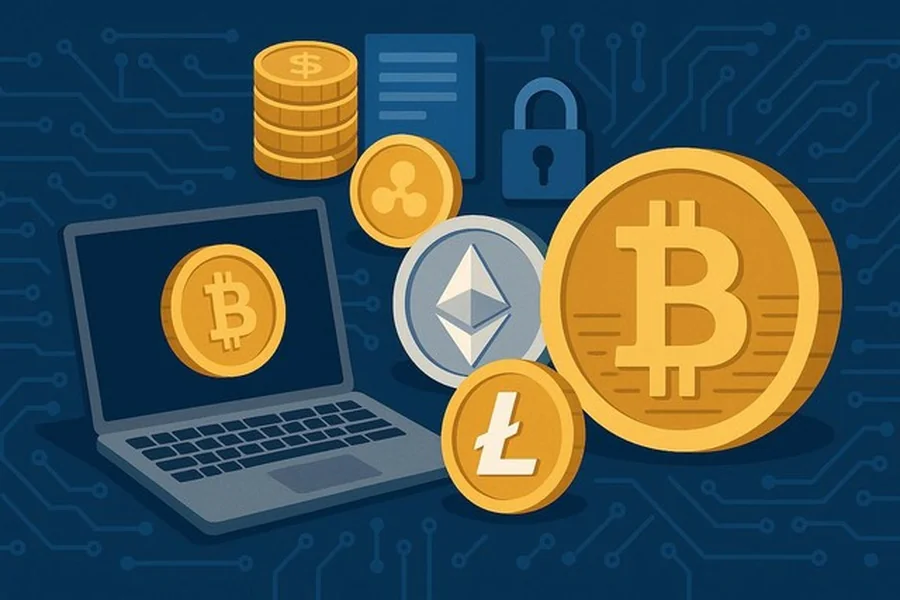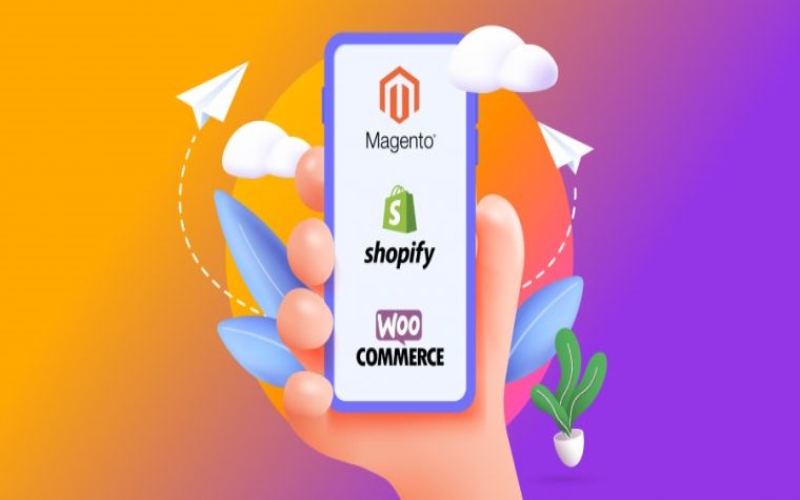Cryptocurrency is not a side topic in finance but a business reality. It started as an experiment for early adopters, and has now turned into a practical tool that enterprises use to cut costs, reach global markets, and build stronger customer relationships. Businesses can adopt tools like digital payments, asset tokenization, and customer reward programs by working with a professional cryptocurrency development company. These options open new ways, like minimizing costs, reaching a wider audience, and building stronger ties with customers, more than traditional systems allow.
For companies evaluating growth in today’s economy, the question is not whether to consider cryptocurrency but how to use it effectively. The right approach can position a business to operate faster, access new investors, and build communities that stay engaged. This blog helps you explore the advantages, challenges, and clear steps companies can take to adopt or even create their own cryptocurrency with confidence.
How Crypto Strengthens Modern Enterprises?
Companies are under pressure to reduce expenses, expand market growth and improve visibility. These realities have turned cryptocurrency from a new idea into a useful tool for business with lasting value. It allows transactions to move across borders in minutes, minimize cost by removing intermediaries, and provides greater efficiency in financial operations.
Cryptocurrency also creates new space for growth apart from payments. Tokenized assets make property, commodities, or equity accessible in smaller units, which opens more investment opportunities. Branded tokens and rewards improve customer engagement, while token sales allow businesses to raise capital directly from global investors. These features show how cryptocurrency development supports cost savings, liquidity, loyalty, and fundraising.
Using Cryptocurrency to Strengthen Business Operations
When businesses bring crypto into their workflows, the cycle is simple. It tracks payments, selects faster rails, and adds new income paths where useful. The same loop also opens global reach and supports engagement programs while keeping control with the business team. These features sit beside existing systems so companies gain value without losing oversight.
Observe
- Notes how long settlement takes in local and global trade.
- Records the cost of banking fees and extra charges.
- Watches how many buyers drop off at payment checkout.
- Builds a snapshot of speed, cost, and reach in current flows.
Decide
- Chooses crypto rails when time or cost savings are clear.
- Offers payment options in regions with limited banking access.
- Sets up tokens for loyalty, referrals, or subscriptions.
- Plans revenue paths through sales, rewards, or staking models.
Support
- Shares invoices with wallet options and plain instructions.
- Provides help on refunds, record-keeping, and compliance basics.
- Runs promotions that reward participation with tradable value.
- Adds clear tools that keep transactions simple for both sides.
Check & repeat
- Confirms shorter settlement times and lower costs.
- Reviews orders from new regions and digital asset buyers.
- Tracks redemption of tokens and activity in loyalty groups.
- Adjusts campaigns and payment flows, then repeats the cycle.
The Different Crypto Types Every Business Should Know
To decide which digital currency model suits their goals, businesses should first understand the main categories. Each option comes with unique applications:
Understanding Coins and Tokens
Coins like Bitcoin or Ethereum run their own blockchains. Tokens on networks like Ethereum or Solana are cheaper to launch, support payments, rewards, and business utilities.
Security Tokens for Investment
Security tokens are linked to assets such as stocks, bonds, or property. They give firms a regulated way to raise funds while investors gain legal ownership rights.
Stablecoins for Payments
Stablecoins are tied to assets like national currencies or gold, making them useful for salaries, vendor payments, and daily transactions without the risk of sharp swings.
Governance and Reward Tokens
Governance tokens allow holders to vote on upgrades and decisions. Reward tokens motivate users through referrals, loyalty programs, and activities that build engagement.
Asset-Backed and Wrapped Tokens
Tokens can represent real assets like real estate, gold, or art. Wrapped tokens mirror assets on other blockchains, improving cross-network access and liquidity options.
Practical Steps for a Successful Cryptocurrency Launch and Funding
It is important for companies to have a clear and structured approach for a successful cryptocurrency launch. Key steps include:
Defining The Token’s Purpose
State the purpose of the token. Payments, fundraising, customer rewards, or governance all require different planning, and this purpose guides how the token is made and utilized.
Select The Blockchain
Select blockchain according to your project goal. Ethereum is for developers, while BSC, Polygon, and Solana offer quicker transactions with lower fees, as network affects the costs, accessibility, and integration.
Designing Tokenomics
Establish the economic model, including total supply, distribution, vesting schedules, and governance rights. A clear structure builds confidence among investors and prevents issues caused by weak or unclear rules.
IDO for Fundraising
An Initial DEX Offering allows businesses to raise capital by listing tokens on decentralized exchanges. With the right IDO token development strategy, companies gain global access, and early community support.
Legal and Regulatory Alignment
Review local and international laws to remain compliant with KYC, AML, and securities standards. With proper legal support, businesses reduce risks, meet obligations, and strengthen trust with investors.
Smart Contracts
Smart contracts define how tokens function across a network. Working with a cryptocurrency development company helps guarantee accurate coding, detailed testing, and security reviews for safer execution.
Integrating Payment Systems
Allow tokens to connect with common wallets like MetaMask, Trust Wallet, or Ledger. Adding payment processors gives users smoother transactions and provides businesses with flexible payment methods.
Breaking Down Tokenization for Everyday Businesses
When businesses consider tokenization, the focus should be on how assets can be digitized and offered in new forms of participation. Practical areas include:
Real Estate
Properties can be divided into blockchain-based tokens, allowing investors to purchase fractions rather than entire assets. This lowers entry barriers and widens access to real estate markets.
Supply Chains
Tokens can be applied to track goods as they move different stages. Each transaction is recorded, ensuring better oversight while allowing payments to be settled automatically when milestones are met.
Commodities Trade
Assets like gold, oil, or agricultural produce can be issued as tokens. This provides investors with a more flexible way to trade and hold commodities without needing physical transfer.
IP Royalties
Creative property rights like music or patents can be tokenized for royalties to automatically divided and pay the rightful holders. This cuts the disputes and makes accurate distribution.
Legal Guide for Cryptocurrency and IDO Success
Launching a cryptocurrency or IDO is more than a technical challenge; it requires aligning with legal frameworks across multiple jurisdictions. Early compliance reduces risks, strengthens credibility, and supports long-term growth. Here’s a step-by-step guide to help companies move forward with confidence.
- Begin with KYC Checks
Start by setting up processes to confirm the identity of every participant. This protects against fraud, helps filter genuine investors, and ensures compliance with international verification standards.
- Put AML Rules in Place
Add monitoring tools to detect unusual activity. Tracking transaction patterns and reporting suspicious behavior shields your project from being linked to illegal movement of funds.
- Address Securities Laws Early
Review whether your token could be viewed as a security. If it grants ownership rights or revenue shares, registration or valid exemptions are often mandatory. Handling this upfront avoids penalties later.
- Map Regional Standards
Each region has its own framework: the EU follows MiCA, the US looks to SEC guidance, and Dubai applies VARA rules. Understanding and applying the right framework before launch keeps your project legitimate across borders.
- Secure IDO Oversight
When raising funds through decentralized exchanges, embed compliance into the process. That means adding KYC checks, defining clear token utility, and meeting the rules of every region where you aim to operate.
- Keep Compliance Continuous
Legal checks should not stop after launch. Regular reviews, updates to match new regulations, and ongoing reporting help maintain investor trust and safeguard your long-term reputation.
Roadmap for Building Sustainable Cryptocurrency Projects
Launching a crypto project works best with steady guidance and a structured plan. Rather than rushing, the process benefits from expert input, gradual setup, and clear checkpoints that align with business goals. These steps show how experienced partners help projects move from concept to lasting adoption.
Start with expert backing:
Bring in experienced developers early. They help design, code, and test the token so risks are reduced and the work stays aligned with your goals.
Connect core platforms first:
Focus on the basics like wallets, payment links, and launchpads. A clean setup creates smoother access for investors and early users right from the start.
Cover compliance early:
Work with advisors who guide through KYC, AML, and related rules. Early clarity protects the project and builds trust with partners and investors.
Use a phased rollout:
Pilot programs let you test the model, adjust, and then scale once results and compliance are proven. Growth builds stronger when it happens in steps.
Grow the community:
Plan outreach alongside the launch. Content, partnerships, and reward programs keep people engaged and involved well beyond the first listing day.
Closing Insights
Cryptocurrency is moving from limited use to a regular part of how businesses operate. As regulations become clearer and larger institutions take part, the space is gaining stability. For companies, this shift brings real chances in payments, fundraising, asset tokenization, and reaching wider markets.
The businesses that define a clear purpose, plan carefully, and work with an experienced token development company will gain the most. Companies that move early can improve their financial systems and gain ground in the digital economy. The question ahead is when, not if, cryptocurrency becomes part of business strategy.





